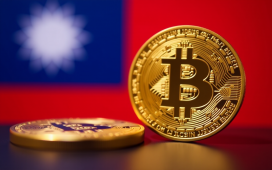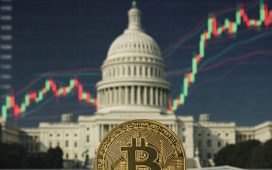
- The IMF wants El Salvador to limit “public sector exposure to Bitcoin”
- The financial agency’s remarks follow an August statement, which talked about “mitigat[ing] the risks from Bitcoin”
The International Monetary Fund (IMF) has recommended that El Salvador reduce the scope of its Bitcoin law and limit the public’s exposure to Bitcoin.
During a press conference, IMF spokesperson Julie Kozack said:
“What we have recommended is a narrowing of the scope of the Bitcoin law, strengthening the regulatory framework and oversight of the Bitcoin ecosystem, and limiting public sector exposure to Bitcoin.”
Kozack added that the IMF continues talking with El Salvador and that “addressing risks arising from Bitcoin is a key element of these discussions.”
The Central American country is no stranger to the IMF’s views on its use of Bitcoin. Notably, the issue goes back to 2021 when El Salvador made Bitcoin legal tender. Following its official adoption, the IMF released a statement in November 2021 “recommend[ing] narrowing the scope of the Bitcoin law” while “strengthening the regulation and supervision of the new payment system.”
This was again called for in January 2022 when the IMF advised El Salvador to reconsider its decision on Bitcoin as the country’s legal tender.
More recently, the IMF released a statement in August that focused on, among other things, the need to “mitigate the risks from Bitcoin.” However, the financial agency did note that while “many of the risks have not materialized, there is joint recognition that further efforts are needed to enhance transparency..” in Bitcoin.
Still committed to Bitcoin
Despite these remarks from the IMF and the continued back-and-forth, El Salvador remains unchanged in its mission to see Bitcoin rise in the country.
However, while the government is keen to see adoption numbers rise, Nayib Bukele, El Salvador’s pro-Bitcoin president, knows more work needs to be done. In a recent interview with TIME magazine, Bukele admitted that his Bitcoin strategy for El Salvador had been “net positive,” but it hasn’t witnessed the “widespread adoption” they hoped for.
Despite this, Bukele remains committed, even going so far as to buy additional Bitcoin when the price drops. The country also promised to use the profit it makes from its Bitcoin Trusts to build 20 schools as it works at making crypto more appealing to its citizens.








